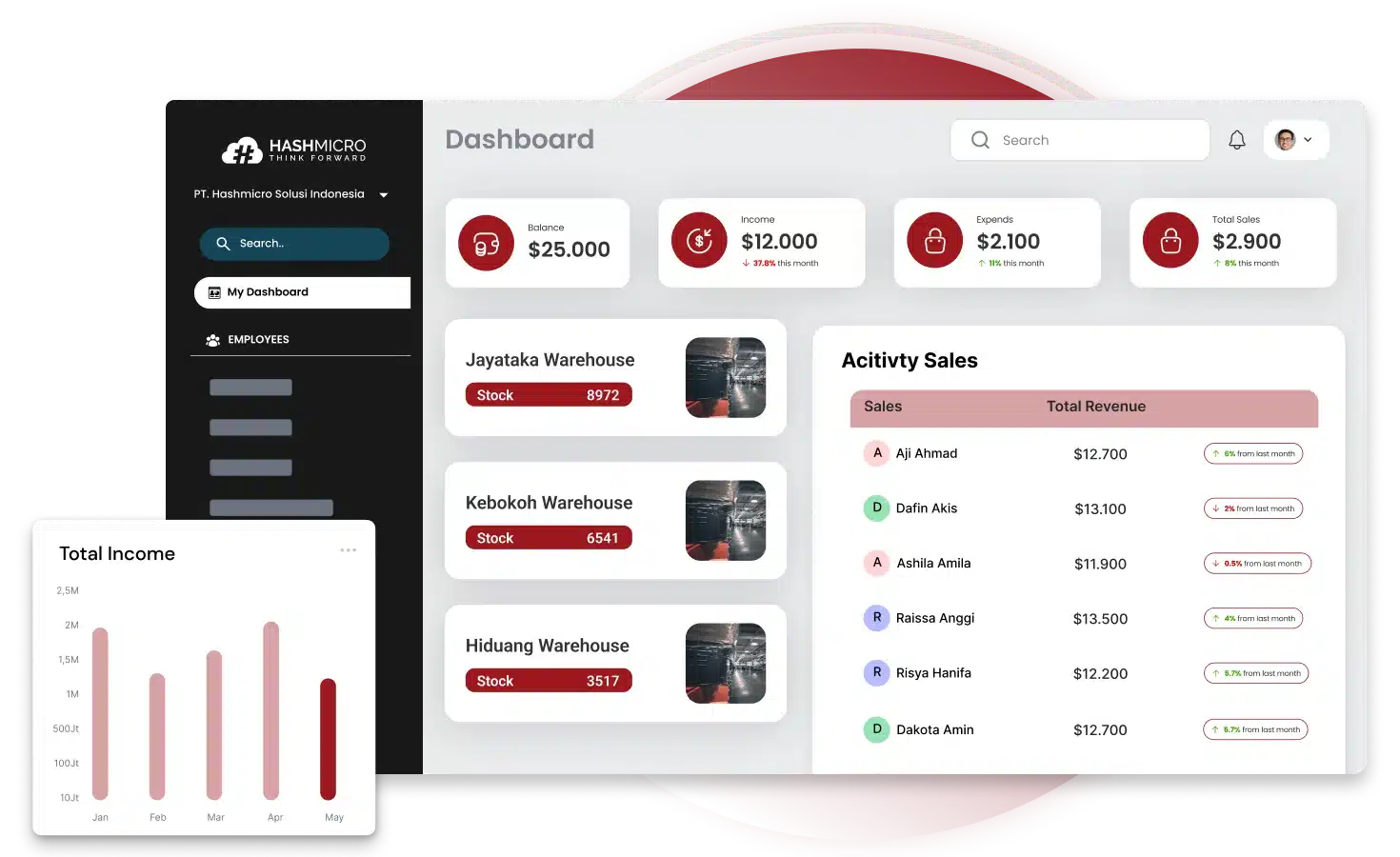I know how challenging it can be to manage inventory, especially when dealing with fast-moving or perishable goods. One small mistake in stock tracking can lead to overstocking, spoilage, or missed sales opportunities.
That’s why I rely on an ERP system for retail inventory management to keep everything running smoothly. It ensures that perishable goods stay fresh, fast-moving products remain well-stocked, and rarely demanded items don’t take up unnecessary space.
Without a reliable system, it’s easy to lose track of what’s in demand and risk losing sales opportunities. With the retail system solution, I can instantly locate any item, optimise stock levels, and maintain consistent customer satisfaction across all outlets.

Key Takeaways
- An intelligent inventory management system empowers businesses to overcome these challenges by providing real-time visibility and data-driven control across all locations.
- Key features of a perfect inventory system for the trading industry are stock management, supplier management, and customer management.
- HashMicro’s ERP System for retail inventory management is designed to simplify operations, improve visibility, and ensure seamless coordination across every aspect of your trading business.
Book a Demo Now! |
How an Intelligent Inventory Management System Drives Wholesale and Retail Success
 Managing multiple warehouses across cities can be a massive challenge for large wholesalers and retailers. Without the right system, tracking stock movement, ensuring availability, and maintaining accurate data across locations becomes nearly impossible.
Managing multiple warehouses across cities can be a massive challenge for large wholesalers and retailers. Without the right system, tracking stock movement, ensuring availability, and maintaining accurate data across locations becomes nearly impossible.
That’s why a robust Multi-Warehouse Inventory Software is essential to keep operations running smoothly and efficiently. Here’s how advanced inventory software helps businesses manage complex, multi-location operations with ease:
- Centralized Stock Visibility: Gain complete, real-time visibility of inventory across all warehouses—whether local or global—through a single dashboard.
- Cloud-Based Accessibility: With cloud integration and cloud computing, authorized users can access live inventory data anytime, anywhere, ensuring fast responses to customer demands.
- Automated Stock Replenishment: Avoid stockouts and overstocking with automatic restocking based on demand forecasts and purchasing integration.
- Seamless Order Fulfilment: When a product isn’t available in one warehouse, the system instantly checks others, allowing you to fulfil orders without delay.
- Integrated Accounting and Purchasing Modules: Keep financial records and purchasing decisions aligned with real-time inventory updates to maintain accuracy and profitability.
Features of a Perfect Inventory System for the Trading Industry
The trading industry cannot take any risk when it comes to maintaining the stock in case of wholesale and retail. The following features are essential to a robust Inventory Management System for trading industry:
Stock management
It essentially involves keeping track of the current stock of items at various locations and in transit. The system will cross-check for theft, damage, or waste of value, and verify the stock amounts periodically.
This feature gives the real-time stock level of all items the organization needs and alerts the management when the fast-moving products go below the required stock level or reach the re-order level. It also includes options for generating GRN.
Supplier management
It maintains the supplier records, the stock they supply, the credit limit permit, and the time taken to replenish stock. The system keeps track of payments to the supplier and alerts the purchase manager near the payment date. It also keeps track of the payments made to them.
Customer management
It keeps track of the customers, their order frequency, frequently ordered items, permits credit limits, generates credit notes, etc. Customer management is critical in the Retail Inventory System, as the retailers deal with more customers directly than the wholesalers.
The wholesalers also consider customer management crucial as their customers deal with large volumes and stock value.
Enquiry management/order management
It accepts customer inquiries in the case of wholesale as well as retail and checks for the corresponding stock availability in the system. It alerts the supervisor or sales manager regarding the demand and provides information on current stock levels.
Also read: What is ERP System Inventory Management and Its Benefits
Automated Stock Replenishment
The optimal stock values require to be set in the Inventory software. The business validations are also selected based on the values set by the management. Re-order quantity is manually set against each item in stock which is the base value for stock management.
Before or when an item runs out, the system alerts the purchase manager to replenish the supply. It could also send an automated purchase order, which is sent to the supplier once accepted.
Budgeting Stock Requirements
This forecasts the stock requirements for the forthcoming months or a year base on past and current sales and purchase data. Budgeting or forecasting stock is very important in the Wholesale business as each order will deal with large volumes of stock.
The wholesale Inventory System keeps track of stock acquired from each supplier, including the time taken for replenishment and the frequency of re-order. The system predicts future purchasing patterns to maintain optimal stock levels.
To do that, it uses data and demand or actual demand and sales of each item in Inventory. This important feature helps management decisions and sustains retail and wholesale businesses.
You can also read other articles related to Good Receipt Notes (GRN), such as how to create them effectively, their importance in inventory management, and best practices for implementation.
Here is a table summary of the features of a perfect inventory system for the trading industry
| Key Features |
Description |
| Stock management |
The system prevents losses from theft or damage, sends alerts for low or fast-moving stock, and streamlines processes like Goods Receipt Note (GRN) generation. |
| Supplier management |
Track supplier details, delivery timelines, credit limits, and payment schedules. The system ensures timely replenishment and sends alerts for upcoming payments. |
| Customer management |
Manage customer profiles, purchase history, and credit limits efficiently. This feature helps improve service quality and maintain strong relationships with both retail and wholesale customers. |
| Enquiry management/order management |
Handle customer inquiries and check stock availability instantly. The system notifies sales managers of demand and provides real-time stock updates for quick order processing. |
| Automated stock replenishment |
Set optimal stock levels and reorder quantities to prevent shortages. The system alerts managers or automatically generates purchase orders when inventory runs low. |
| Budgeting stock requirements |
Forecast future stock needs using sales and purchase data. This feature helps maintain ideal inventory levels, optimize purchasing patterns, and support better business planning. |
Streamline Your Trading Industry with HashMicro’s ERP System for Retail Inventory Management
 HashMicro’s ERP System for retail inventory management is designed to simplify operations, improve visibility, and ensure seamless coordination across every aspect of your trading business.
HashMicro’s ERP System for retail inventory management is designed to simplify operations, improve visibility, and ensure seamless coordination across every aspect of your trading business.
It offers managing trading operations, from wholesale and warehousing to retail, which requires precision and efficiency. Without the right system, tracking inventory, managing suppliers, and maintaining accurate financial records can quickly become overwhelming.
Here’s how HashMicro’s ERP system helps trading companies achieve greater efficiency and profitability:
- Centralized Inventory Control: Monitor stock levels across multiple locations in real time to prevent shortages and overstocking while maintaining optimal inventory balance.
- Supplier & Customer Management: Manage supplier performance, payment schedules, and customer orders efficiently, enhancing relationships and boosting customer satisfaction.
- Automated Stock Replenishment: Set reorder levels and automate purchase orders to ensure that high-demand products are always available.
- Cloud-Based Operations: Access your inventory and financial data anytime, anywhere with secure cloud integration that supports remote management.
- Integrated Accounting & Sales Modules: Synchronize sales, purchasing, and accounting data to maintain financial accuracy and gain valuable business insights.
Conclusion
Real-time integration between Inventory, Accounting, Warehousing, and Sales modules is essential for a seamless trading operation. These connected systems ensure that data flows accurately across departments, preventing delays and errors in stock.
With HashMicro’s ERP system for retail inventory management, businesses can track purchase and sales costs, monitor inventory levels, and determine the optimal stock needed to maintain profitability.
HashMicro offers a fully integrated solution that covers inventory, HRM, warehouse, and accounting management. Streamline your business operations today, request a free demo and explore our ERP System pricing scheme to find the right fit for your needs
Warning: Undefined array key "med" in /home/hashmicr/public_html/blog/wp-content/plugins/insert-headers-and-footers/includes/class-wpcode-snippet-execute.php(419) : eval()'d code on line 281

Frequently Asked Questions
-
What is a Retail Management System?
A Retail Management System (RMS) is an integrated software designed to manage all retail operations in one platform, from sales and inventory to customer and employee management.
-
Can a Retail Management System manage multiple stores or warehouses?
Yes. A modern Retail Management System supports centralized control across multiple stores and warehouses. It allows real-time stock tracking, inter-store transfers, and unified reporting, ensuring consistent inventory accuracy.
-
What integrations should a good Retail Management System have?
An effective Retail Management System integrates seamlessly with accounting, e-commerce, CRM, and payment platforms. This connectivity ensures smooth data flow between departments, and gives business owners a complete overview of sales.
 Managing multiple warehouses across cities can be a massive challenge for large wholesalers and retailers. Without the right system, tracking stock movement, ensuring availability, and maintaining accurate data across locations becomes nearly impossible.
Managing multiple warehouses across cities can be a massive challenge for large wholesalers and retailers. Without the right system, tracking stock movement, ensuring availability, and maintaining accurate data across locations becomes nearly impossible.




 HashMicro’s ERP System
HashMicro’s ERP System




























